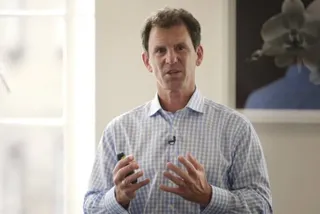
Leadership Reflections from the Pyeongchang Olympics | A Q&A with John Steele
John Steele is a former professional soldier, athlete, sports coach and Olympic Leader. The Chief Executive across a range of sectors, and with leadership experience of 9 different Olympic and Paralympic Games (including the amazing events at the Rio Games), John shares his leadership reflections from the Pyeongchang Olympics (and you also can read about John Steele's thoughts on Tokyo 2020 and reflections on Rio 2016 here! Hi John, can you tell us about your background and what you speak about?
I have enjoyed having leadership roles in the military, the corporate world and sport. I have been a CEO in sport in the private, public and not for profit sectors including leadership roles in nine Olympic and Paralympic Games. I have been privileged to have an insight into the lessons and challenges for TeamGB during the progressive success of the last 12 years.
I speak about the leadership lessons during this time including “understanding resilience”, “blurred line leadership”, ”leading the whole person”, “keeping strategy real”, and “leading in times of constant change”.
What was the atmosphere like at the 2018 Winter Olympics in PyeongChang?
PyeongChang is the third winter games I have been privileged to be part of, and witnessing some of the drama first-hand reminded me more than ever about the unforgiving nature of competition at this level and the tiny margins that exist between euphoric success and devastating failure. It is these highs and lows of emotion that make live high-performance sport so mesmerising and inspirational.
Being on the right side of this divide is a combination of art, science, good fortune but above all else absolute commitment. The hairsbreadth, the tiny margin, the immeasurable difference is the world we occupy in our mission to prevail against stiff competition.
"Leaders must lead the whole person, not the role"
What skills are crucial for high-performance amid such rife competition at Olympic level?
This is hard sport in tough conditions, where the need for physical and mental resilience is a given. I sometimes hear people referring to resilience when I believe they really mean mental toughness. All these athletes require mental fitness to dedicate themselves to training and withstand the pressures of competition. It is the individuals that are truly resilient who pick themselves up from inevitable setbacks during competition, and also longer-term challenges between Olympic cycles, who become Olympic champions.
You talk about leadership and strategic planning. What are the key challenges for leaders in today’s society?
Today’s leaders must understand how they manage themselves and those in their teams to navigate an increasingly difficult way of life. No longer is the term “work-life balance” relevant. To divide the two may be desirable, but with the technological world we live in, it is impossible. Work and life are one, and it is simply life balance that should be our aim.
In the organisations I work with, I can see more and more corporate fatigue brought about by growing workloads and uncontrolled social media, developing into emotional well-being and mental health issues. The days of people development being focused on improving management systems and process effectiveness are gone. Now leaders must prioritise looking after their people as good coaches look after their athletes, ensuring a balance of demands and support, and developing the all-important resilience. Coaches in Pyeongchang were walking the tightrope of carer when physical injury or mental anxiety struck, and performance enhancer in the build-up to competition. Leaders must lead the whole person, not the role.
What lessons can other sectors learn about leadership from sport?
I believe sport reflects society, and to a certain extent, society reflects broader sport. To develop resilient people and a caring culture is a balancing act like no other. Too much of either can render both ineffective.
As recent history shows us, sport has not always got this right, but it does understand the need to change and is learning some invaluable lessons. Pyeongchang was the ninth Olympics or Paralympics in which I have been privileged to have a leadership involvement, and at each one there have been different lessons. The South Korean experience brought home to me that to stay ahead today’s leaders must flex and evolve their style and the way they lead, to adapt to a changing environment and talent pool. Situational leaders who are not wedded to an unwieldy plan, but use their judgement to innovate and adapt quickly are a necessity. Leaders that really understand how to empower, trust and delegate to their teams are a given. Leaders who can observe, flex and learn quickly in a rapidly changing world.
Thanks John. Tell us – what’s next for you?
As Chairman of the English Institute of Sport, I must ensure that we continue to support and develop our athletes in the lead into Tokyo 2020, and planning will now start for Paris 2024. The cycle of plan-do-review is endless!
For further information call us on or email info@speakerscorner.co.uk .
Newsletter Sign Up
If you liked this article then why not sign up to our newsletters? We promise to send interesting and useful interviews, tips and blogs, plus free event invites too.
Have an enquiry?
Send us a message online and we'll respond within the hour during business hours. Alternatively, please call us our friendly team of experts on +44 (0) 20 7607 7070.
